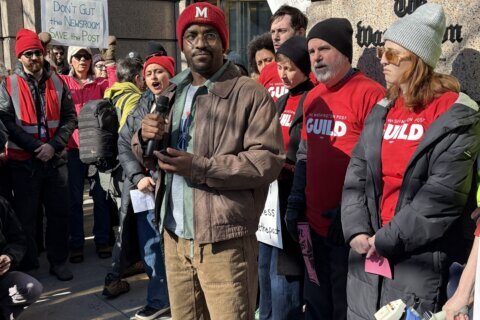
Thousands turned out in Washington, D.C., on Saturday, Aug. 26, to commemorate the 60th anniversary of the March on Washington. The 1963 March on Washington for Jobs and Freedom that featured Martin Luther King Jr.’s iconic “I Have a Dream” speech, actually took place on Aug. 28, making Monday the official anniversary.
The Rev. Nelson B. Rivers III, is the vice president of Religious Affairs for the National Action Network, headed by Rev. Al Sharpton. It is one of the groups that organized this year’s march along with the Drum Major Institute.
The native South Carolinian told WTOP Saturday that the 60th anniversary of the march is powerful for him because he was 12 years old when the first march took place. He says it was one of a series of events in 1963 that, “literally became my ‘why’ for getting into social justice.”
He says the other events included the June 12, 1963 murder of civil rights activist and the NAACP’s first Mississippi field officer, Medgar Ever, who was gunned down in front of his Mississippi home just two-and-a-half months before the march, as well as the bombing of the 16th Street Baptist Church in Birmingham, Alabama, which took place just weeks after the march.
The bombing claimed the lives of four young black girls between the ages of 11 and 14. Rivers said he asked his mother why they killed Medgar Evers. He had seen the picture of Evers’ wife, Myrlie Evers, in Life Magazine.
His mother said, “Because he was trying to help colored people.” Rivers said he responded, “Well, I want to help colored people.”
Twenty-two years later, he became field officer of the NAACP office in South Carolina, the same job that Evers once held.
Rivers said he became committed to the fight for civil rights because he believes, “Every generation has to fight this fight.”
“No generation can afford to take a generation off,” he said. “We can’t take a generation off, because if we don’t fight, we lose.”









